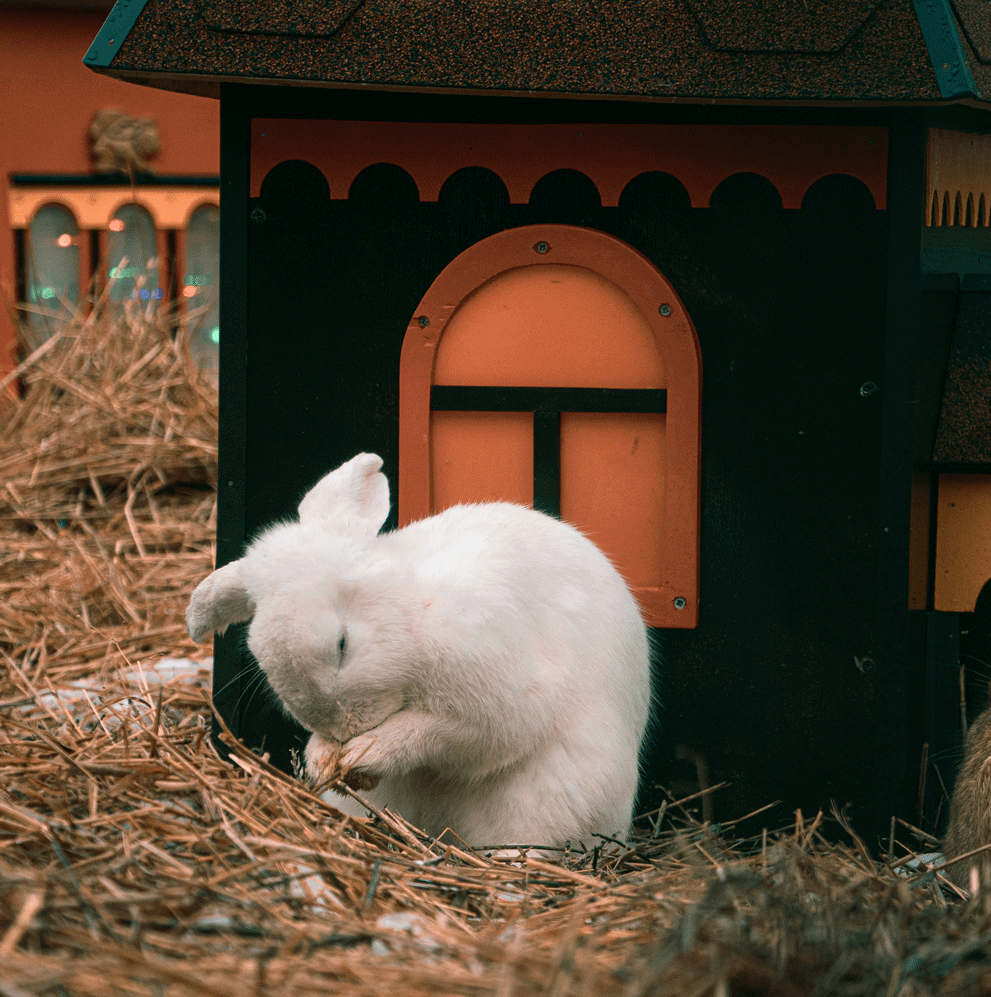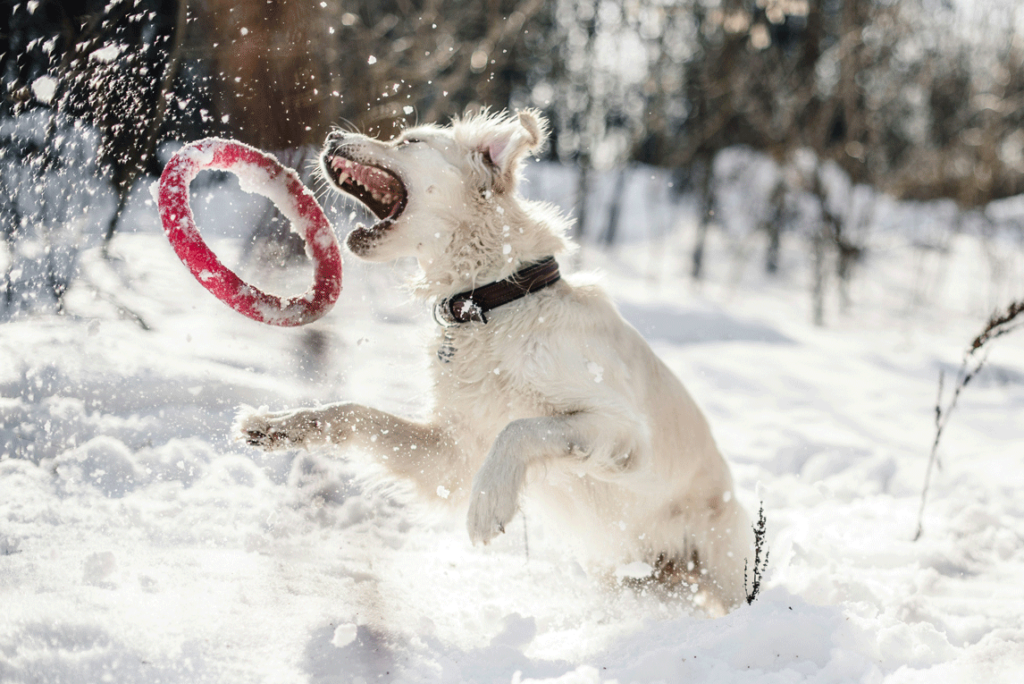Winter Care for Pets: Keeping Your Pets Safe in Cold Weather
Looking after pets in the winter requires some special attention to ensure their comfort and safety in cold weather. Here are some tips for taking care of your pets during the winter months:

Provide Shelter:
Make sure your pets have a warm, dry shelter to retreat to when it’s cold outside. For dogs and cats this will be a warm spot in your home or a cosy basket. For any smaller indoor pets such as guinea pigs, hamsters and rabbits, they will need extra straw or bedding to keep warm. If your pets live outdoors, make sure their housing is insulated, waterproof, and elevated off the ground. It should provide protection from wind, rain, and snow. Over periods of extremely cold weather, some pets who live outdoors, may need to be brought inside. However, make sure that your pets are protected from open fires or wood burners by using a safety screen to prevent accidents.
Adjust walks and playtime:
All pets’ needs are different but many will need time outdoors limited when temperatures drop. You will need to invest more time playing with your pet indoors, provide new toys and create indoor obstacle courses to ensure they are mentally and physically stimulated.
Dress Your Pet:
If you pet is short-haired or is particularly sensitive to the cold weather, research bespoke coats for dogs (and cats) that will help. Make sure the clothing fits well and doesn’t restrict their movement.
Watch for Frostbite and Hypothermia:
Be aware of the signs of frostbite (pale or discoloured skin) and hypothermia (shivering, lethargy, weakness) in your pets. If you notice these symptoms, consult a veterinarian.
Wipe Paws:
Salt and de-icing chemicals used on sidewalks and roads can be harmful for your pets. After walks, wipe their paws to remove any salt or ice-melting chemicals that can be harmful if ingested. If you purchase any anti freeze products for use in your house, be extra careful as these products are toxic for pets.
Monitor their Weight and Diet:
Some pets may feel the cold and therefore need more calories to stay warm and maintain a healthy body weight. Other pets may have reduced their exercise and therefore need slightly less. Either way, it is important to monitor their weight and size. Always ask your vet for advice if you have any concerns.
Keep Fresh Water Available:
Ensure that your pet has access to fresh water at all times. Check their water bowl frequently to prevent it from freezing.
Keep an Eye on Older Pets:
Older pets may be more sensitive to extreme cold. Pay special attention to their needs and consult with a vet about any age-related concerns.
Maintain a Consistent Routine:
Stick to a regular feeding and exercise routine to help your pet maintain a healthy weight and energy level during the winter. Maintaining your pet’s coat during winter is essential. Regular grooming not only keeps them looking their best but also helps maintain the insulation properties of their fur.
Veterinary Check-Up:
Consider scheduling a winter check-up with your veterinarian. They can assess your pet’s health and discuss any specific winter care recommendations based on their breed and individual needs. Winter pet care involves being attentive to your pet’s specific needs and providing a safe and warm environment. While winter can be a wonderful time for both humans and our pets, extra care is necessary. By following these tips and being vigilant, you can ensure that your furry friends enjoy a cosy, and healthy winter season.



